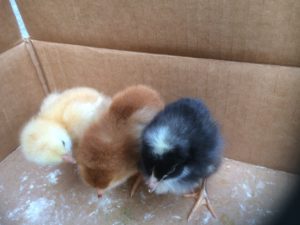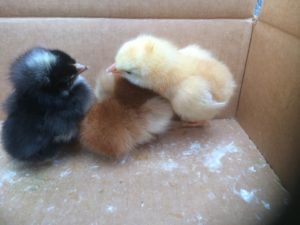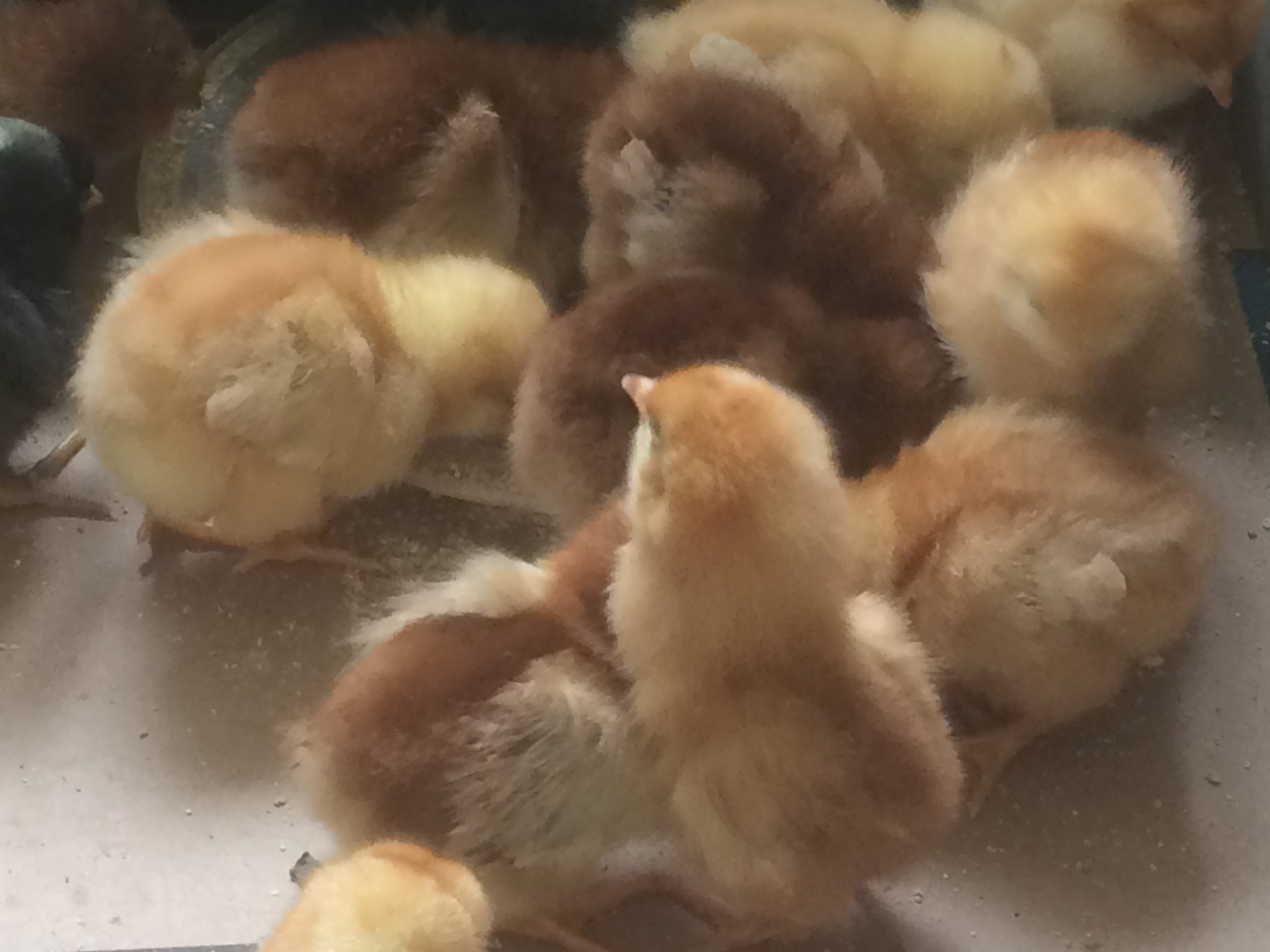Monday, May 3rd was a pretty big day for many of the gardeners in the BUCC and Logan programs. That was the day the chicks arrived, a day old, ready to go to new homes.
Many of gardeners had asked about the possibility of getting chicks early this year. In years past when Grow Appalachia offered through the grant to buy chicks, they were always extremely popular. Gardeners who had not had fresh eggs since their grandparents had raised hens were astonished at how wonderful it was to be eating fresh eggs again. In an effort to respond to our gardeners’ requests, we did a separate fund raiser just to purchase chicks this spring. The fundraising drive brought in enough funds to pay for 175 chicks.

Gardeners appeared at BUCC on May 3rd ready to transport their charges home. Before long, there were pictures and videos posted on our group Facebook page of the chicks settling in. Folks were as excited about the chicks as they are about their first ripe tomato or first ear of corn from the garden.
When our gardeners gathered to wait for the delivery of the fertilizer, a hot topic of conversation was where one might be able to find chicken wire in local hardware stores, as apparently this is one other item in short supply. Gardeners were swapping stories about their hens and/or chicks. Many still report to us monthly totals of dozens of eggs that they collect each month from chicks they received through the Grow Appalachia program.
We do ask for a separate plan from the gardeners before they get their chicks.

Small chicks need to be fed and watered and kept warm with the up and down temperatures of spring. We use a folded over heated mattress pad that we no longer need to keep warm under their box at night and take them out for a protected place in the sun during the day (large cardboard box spread out on a porch floor surrounded by old screens does the trick). They cannot be introduced to older hens until they can fend for themselves (usually 3 or 4 months old and have strong enough wings to skedaddle from their crabby elders; a separate space for food until they settle in). And key is keeping them safe from predators—raccoons and foxes are particularly clever at climbing fences and getting into enclosures at night.
We are grateful to Grow Appalachia for re-introducing the benefits of backyard chickens and we keep trying to carry the tradition forward.



Leave A Comment